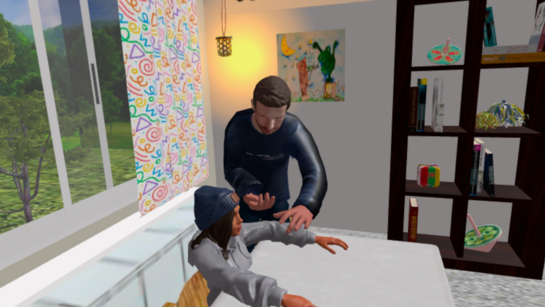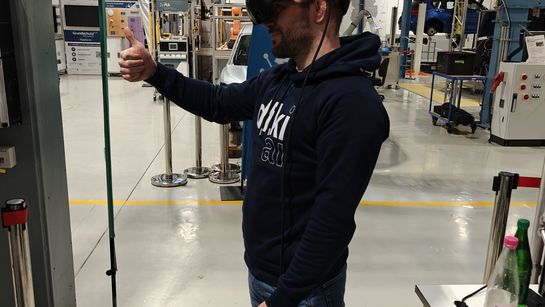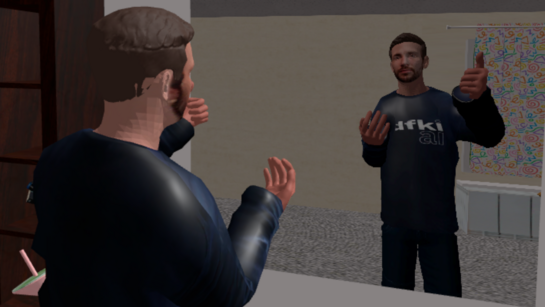Severely ill children, who are prohibited from having direct contact with relatives, should be enabled to meet their parents or close caregivers in virtual, lifelike worlds. While healthy children and their parents can spend time together outside the clinical routine, such opportunities are limited in cases of serious illness.
As part of this project, a solution is being developed that allows children and their caregivers to interact in virtual space. To achieve this, immersive technologies—specially developed for this purpose—are employed to make these encounters as realistic as possible. These technologies take into account the sensory modalities of sight, hearing, and touch, and are optimized with neurotechnological methods for an especially intense emotional immersion. Haptic feedback also simulates touch, creating even more natural and tangible interactions. While the caregivers are situated in a specially prepared room, the children remain in their protected clinical area, ensuring that the success of the therapy is not compromised.
Additionally, a user-friendly and efficient pipeline is being developed for the (semi-) automatic creation of an avatar from images of the face and body. These avatars are controlled in virtual reality using motion capture and allow for an authentic portrayal of emotions.
Partners
- ZeMA gGmbH
- Universität des Saarlandes; Medizinische Fakultät - Klinik für Allgemeine Pädiatrie und Neonatologie - Klinik für Kinder- und Jugendpsychiatrie, Psychosomatik und Psychotherapie - Systems Neuroscience & Neurotechnology Unit
- Universität des Saarlandes, Fakultät für Mathematik und Informatik, Human-Computer Interaction Lab, Department of Computer Science
- Hochschule für Technik und Wirtschaft des Saarlandes, Systems Neuroscience and Neurotechnology Unit



